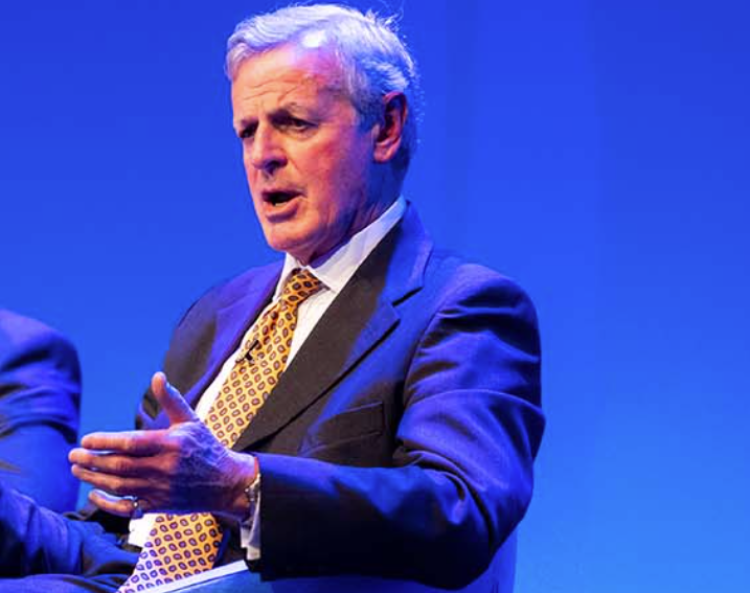Russia-Ukraine consequences spilling into climate risk and technology, says risk panel

The consequences of conflict in Europe are being felt across the industry, according to the keynote risk panel at the Airmic Conference 2023 in Manchester.
Speakers at the Tuesday morning keynote session, Global Risk Panel: Riding the Waves of Future Risks and Opportunities, discussed the possible outcomes of Russia’s war against Ukraine beyond the battlefield, assessing what the impacts would be and what the future will hold.
Geopolitics, climate risk and emerging technologies are all affecting each other with increased complexity, connecting with each other to produce hard-to-predict outcomes, the speakers suggested. With so many things “going wrong” all at once, Jim Wetekamp, CEO of Riskonnect, observed, the focus ought to be on communication, the speed of response, and transparency. All of these drive actions, and they have dependencies on the knowledge and skills which the modern risk professional must have.
Nick Allan, CEO of Control Risks, said the war in Ukraine had expanded from a land-based conflict into one in which cyber-attacks were part of the arsenal of both sides.
“I’ve no insider information on this, but when you see the UK government announce support for air power in Ukraine and then you see electronics systems in the UK fail that day, I see a connection,” Allan said.
Sir Richard Shirreff, co-founder and managing partner of Strategia Worldwide, and former NATO deputy supreme commander in Europe, described the wider implications coming from Russia’s invasion of Ukraine, adding that there was a widespread failure to recognise the reality of the invasion.
He said: “What we need to recognise is that there is not going to be peace in Europe while Putin is in the Kremlin. And even if he goes, which at some stage he will, Russia will continue to be led by someone equally hardline, equally ultranationalist, and equally determined to reduce Ukraine to a rump state and incorporate it into a Russian empire.”
“The only outcome for Ukraine is a victory because anything else means a continuation of the war of a continuation of the occupation, of massacres, the deportation of children, and the destruction of cities.”
He went on: “Assuming an armistice brings the shooting to a halt, Russia will still remain an ever-present threat because it will be humiliated and defeated, determined to have another go. The only way for Ukraine’s security to be maintained is for it to become a part of NATO, and for NATO to develop a band of deterrent steel around Eastern Europe. That means a new Cold war in order to prevent World War III.”
The debate moved on to talk about the implications of the world’s green energy transition, managing climate change risk, while working to a net zero future.
Professor John Elkington, co-founder and Chief Pollinator of Volans, said that there was no question over whether major countries such as the UK and Germany were looking seriously at its energy future. The question, he said, is what that transition would look like.
“What worries me most about the challenge of replacing yesterday’s energy with tomorrow’s is that there are so many distractions,” he said. “Political leaders, even when they’re competent, are not thinking about the North Atlantic sea surface temperature, or what’s happening in Antarctica—things that would spook you if you are a scientist
Tangy Morgan, senior advisor to Strategia Worldwide, and an independent senior adviser for the Bank of England, raised the issue of Brexit and of the UK being able to write its own rules and regulations after leaving the world’s largest trading bloc.
“The reality is that there does need to be some harmonisation amongst regulation for companies and organisations to operate,” she said.
“If you have one rule in country X, and another rule in country Y, how do you make sure you’re not falling afoul of regulations if you have a global footprint? There are also conversations around systemic risk. I would posit that technology is a serious concentration risk, not just for financial services but for all sectors.”
Emerging technologies such as cloud computing and artificial intelligence should be board-level concerns, it was suggested.
“Boards are not necessarily having real discussions and understanding around outsourcing and the use of cloud computing,” Morgan said.
“Cloud has its benefits, but what information are you putting there? What providers are you using? Because you’re only as safe from a cyber-attack or a ransomware attack as your weakest link,” she added.
On the risks of artificial intelligence, Wetekamp offered an analogy to explain how it was not inherently negative. “If I handed you each Christmas lights as you walked [into this auditorium], we would probably be okay. If we handed every single person here laser in this room, I think we would have a lot of anxious people.
“So how do we start to get our hands around large language models and generative AI? A lot of it starts in traditional risk management activities.”
